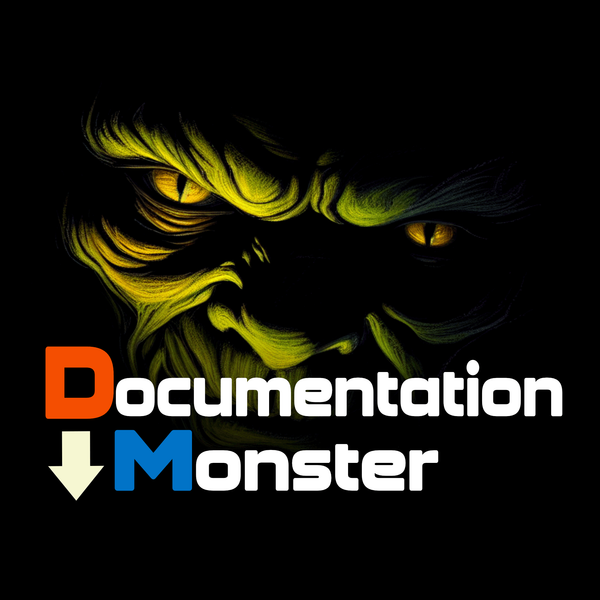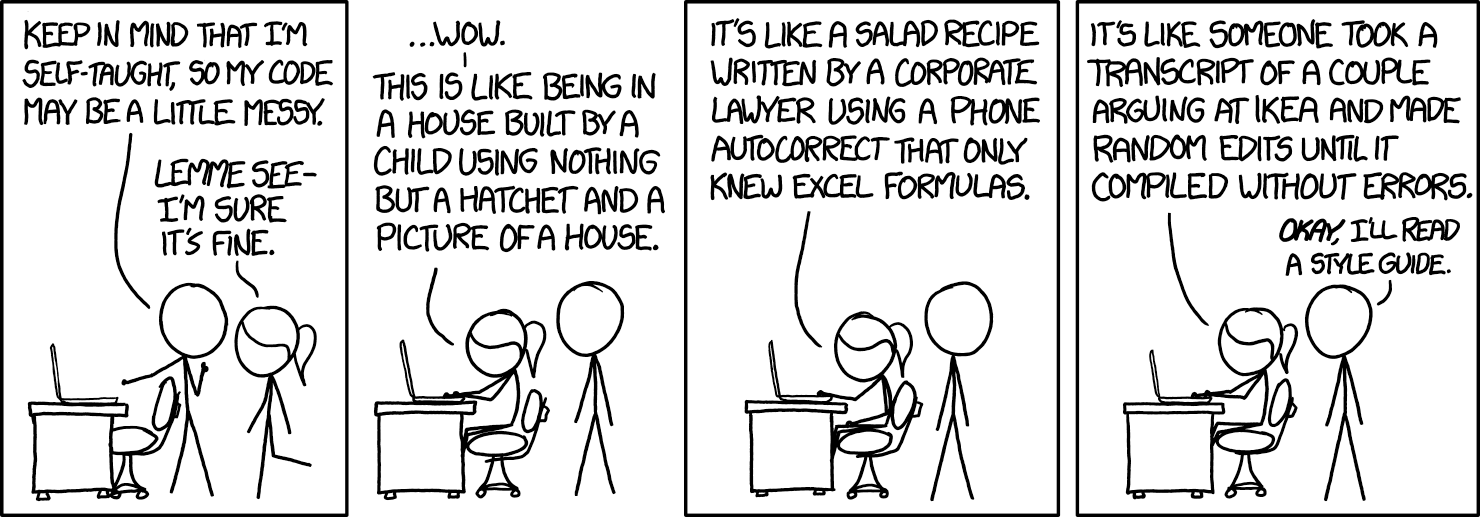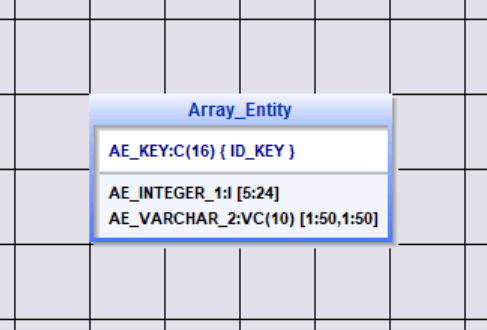Learn, Code, Create—But Mostly Code: A Toastmasters-Style Review of Embarcadero's AI CodeCamp 2025 (Day 2)
The motto—**Learn, Code, Create**—offered an inviting structure, suggesting a thoughtful path from exploration to implementation.
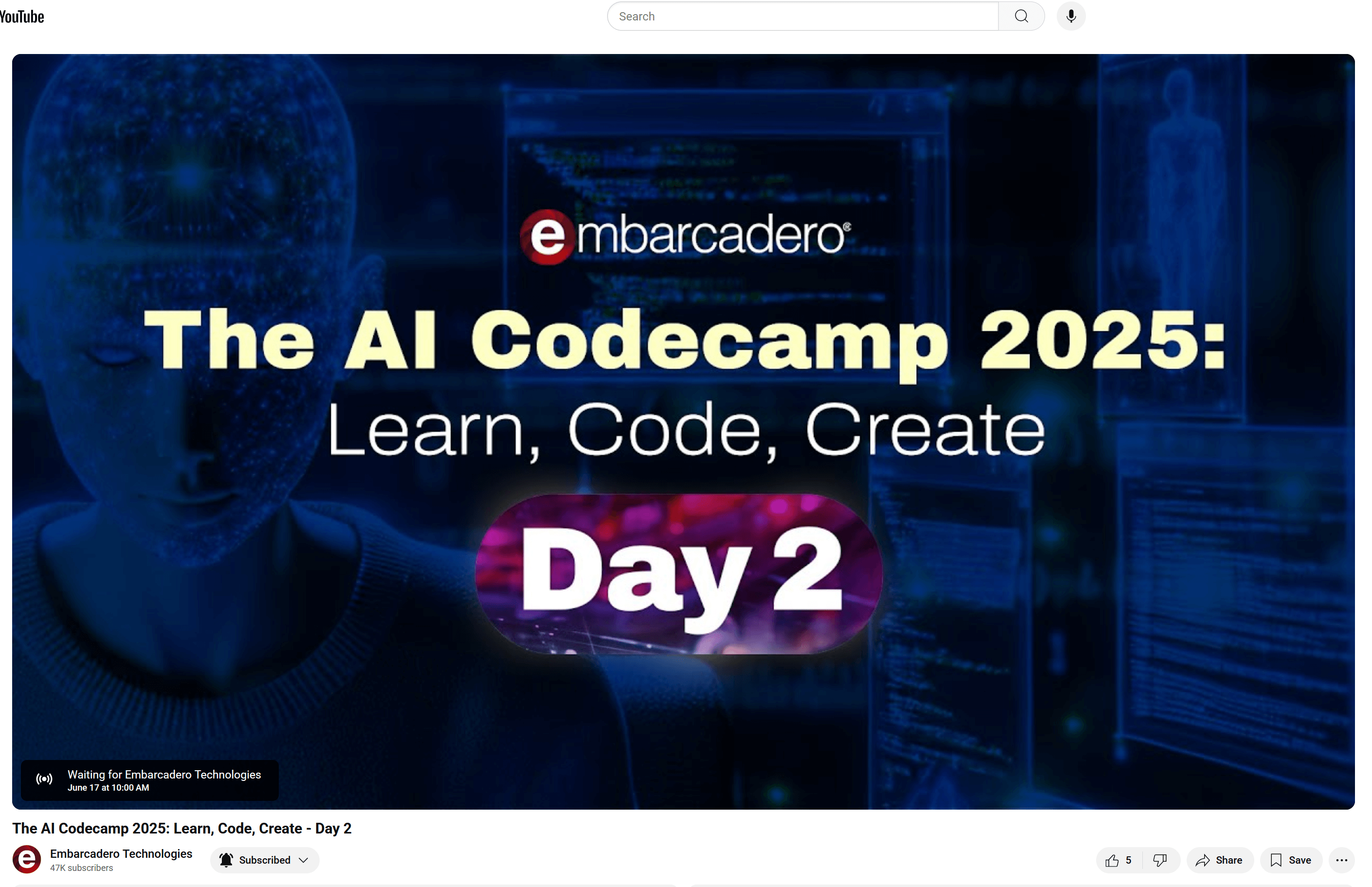
Embarcadero's 2025 AI CodeCamp promised a week of in-depth exposure to integrating artificial intelligence into Delphi-based development. The motto—Learn, Code, Create—offered an inviting structure, suggesting a thoughtful path from exploration to implementation. But Day Two, which ran over six hours with no scheduled breaks, leaned overwhelmingly toward code, with much less emphasis on learning or creating in the broader sense.
To help structure my reflections, I borrowed a page from Toastmasters International, where each speech is evaluated by what was liked, what could be improved, and overall impressions. Below is my presentation-by-presentation evaluation, followed by some general thoughts on the event as a whole.
1. Power-up Your Business Applications
Presenter: Christoph Schneider
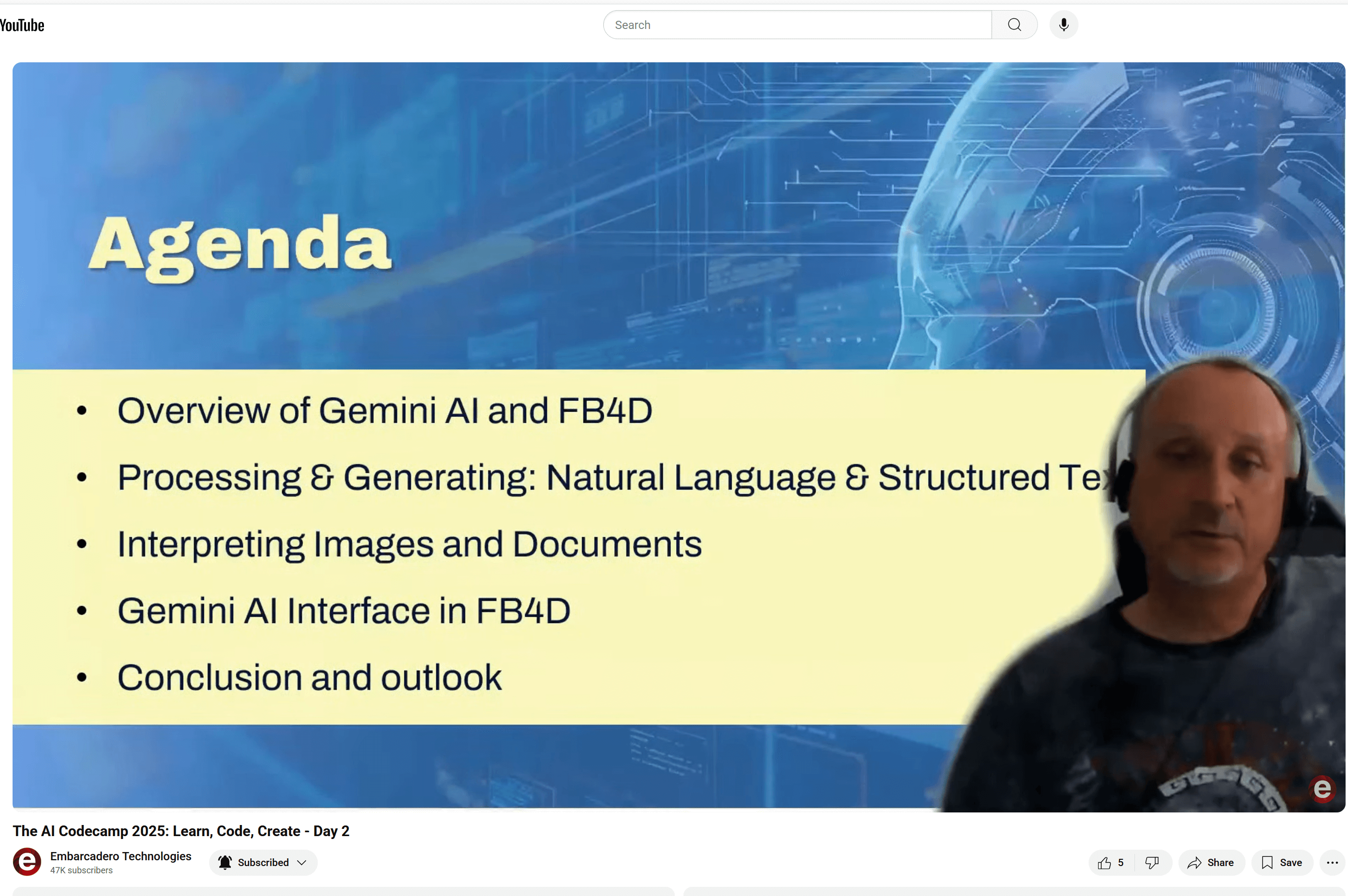
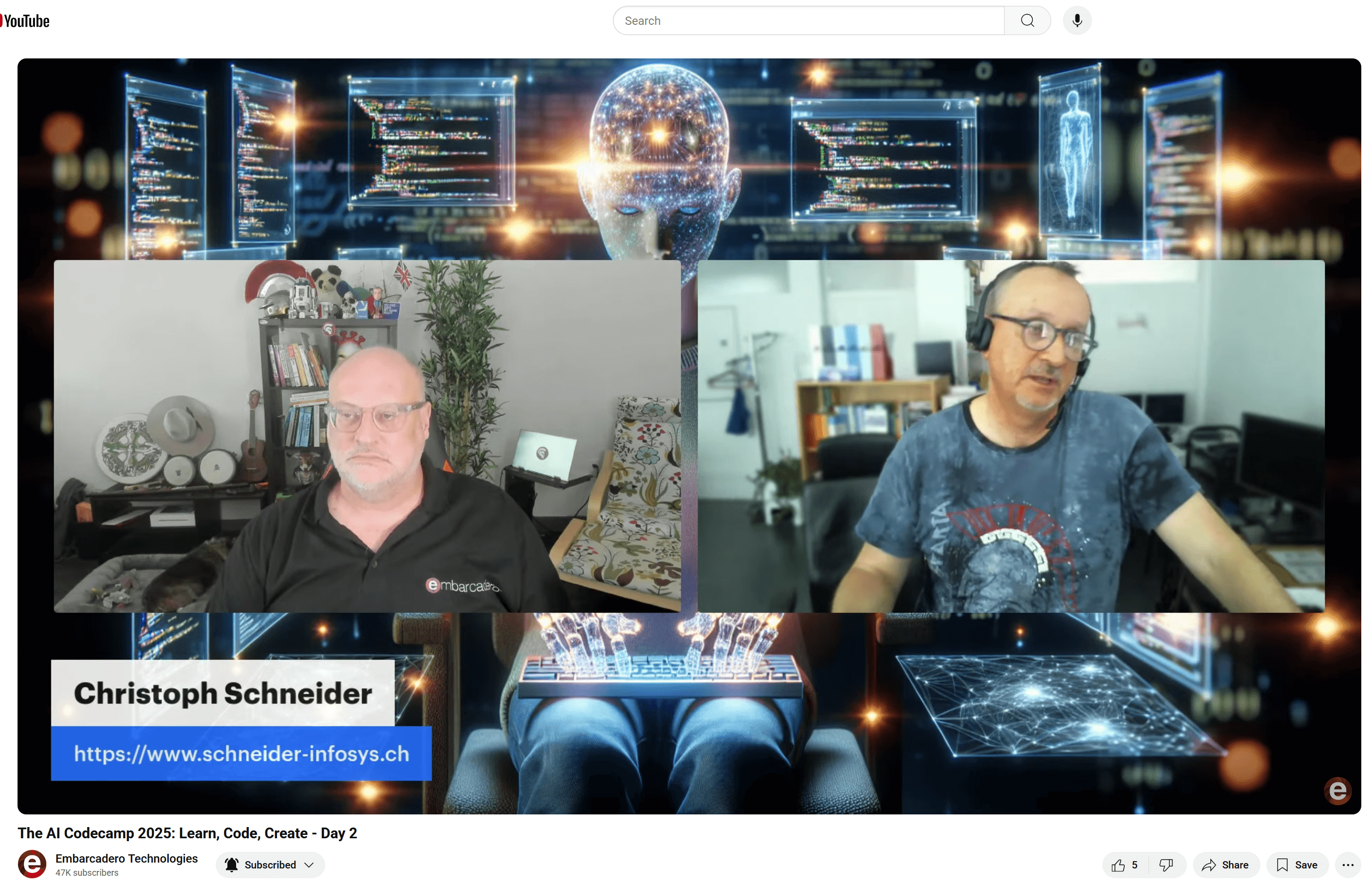
Power-up Your Business Applications with Christoph Schneider
What I Liked
- Demonstrated AI-generated SQL via natural language queries using Gemini and his FB4D library
- Good examples including invoice scanning and email triage
- Presentation style during live Q&A was personable and genuine
- Code demo pacing was calm and deliberate (a welcome change from "jerky cursor syndrome")
What Could Be Improved
- The recorded voiceover was flat and monotonic
- The on-screen presenter window was unnecessary and distracting
- A stronger architectural overview would help orient learners
Overall
A solid, useful demo that could be improved with more attention to pedagogy and presentation polish. Christoph's open-source project (FB4D) deserves support.
2. Different Models For Different Solutions
Presenter: Dion Mai
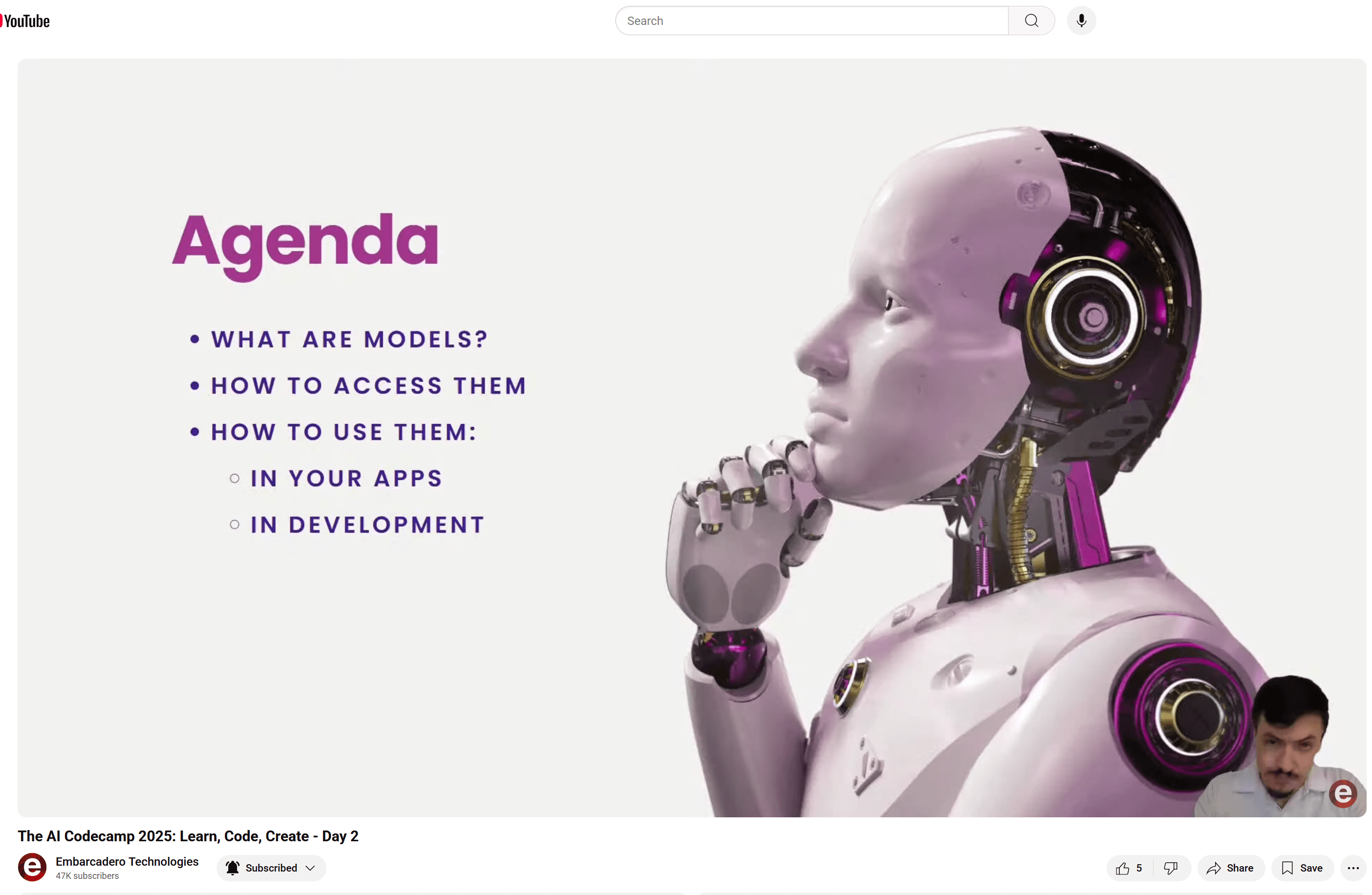
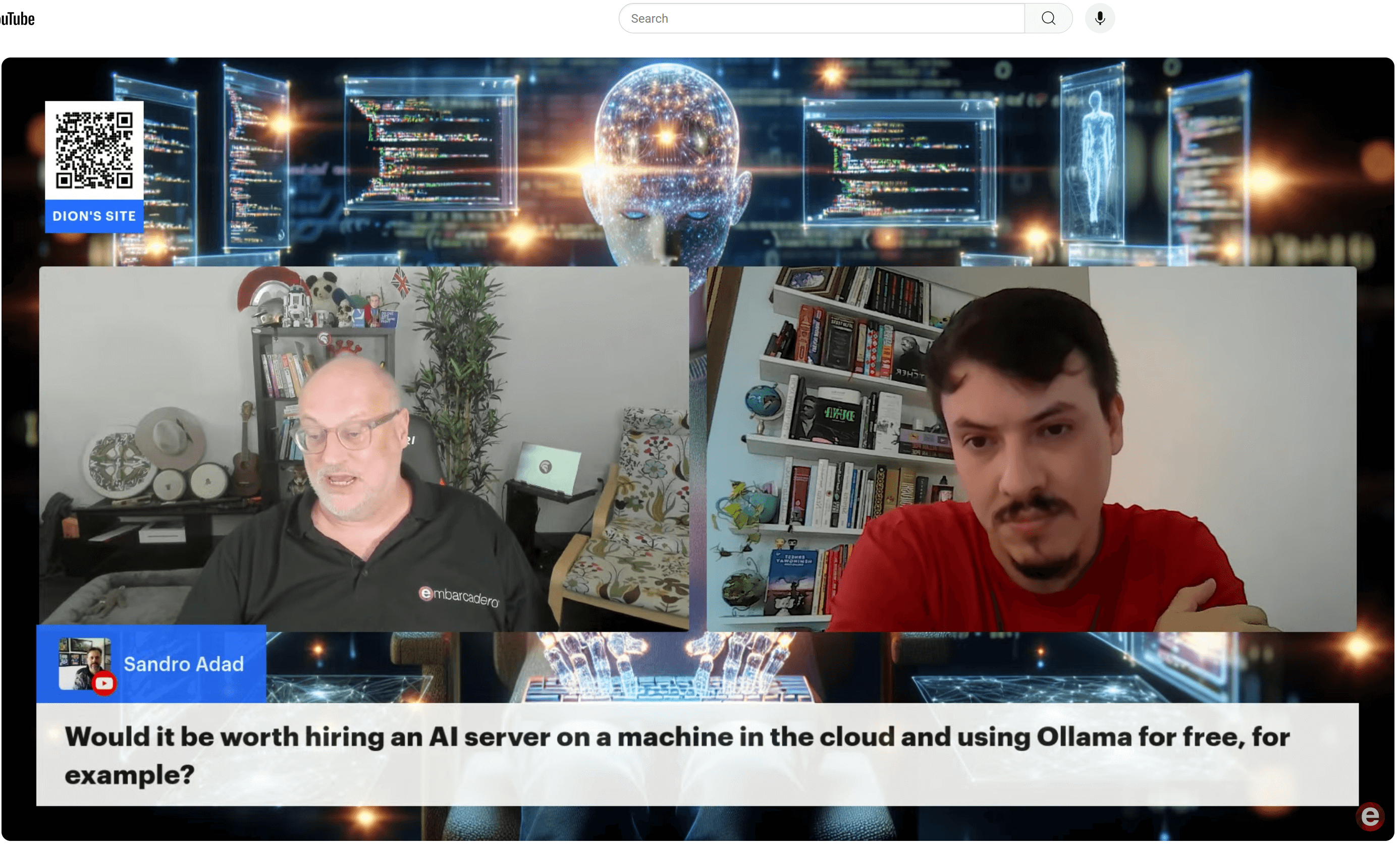
Different Models for Different Solutions
What I Liked
- Real-world concerns about AI model costs were front and center
- Useful breakdowns of OpenAI, Claude, Gemini, and open source options
- No code flood—refreshing!
What Could Be Improved
- Critical concepts like "temperature," "top-p," and "token budget" needed more explanation
- Several tools were named (Canvas, Google Vertex AI, AI/ML for CI/CD) without context
Overall
Conceptually ambitious and worthwhile, but assumed too much prior knowledge. I found myself turning to ChatGPT afterward to clarify many key ideas.
3. The Real Truth About AI
Presenter: David Cornelius
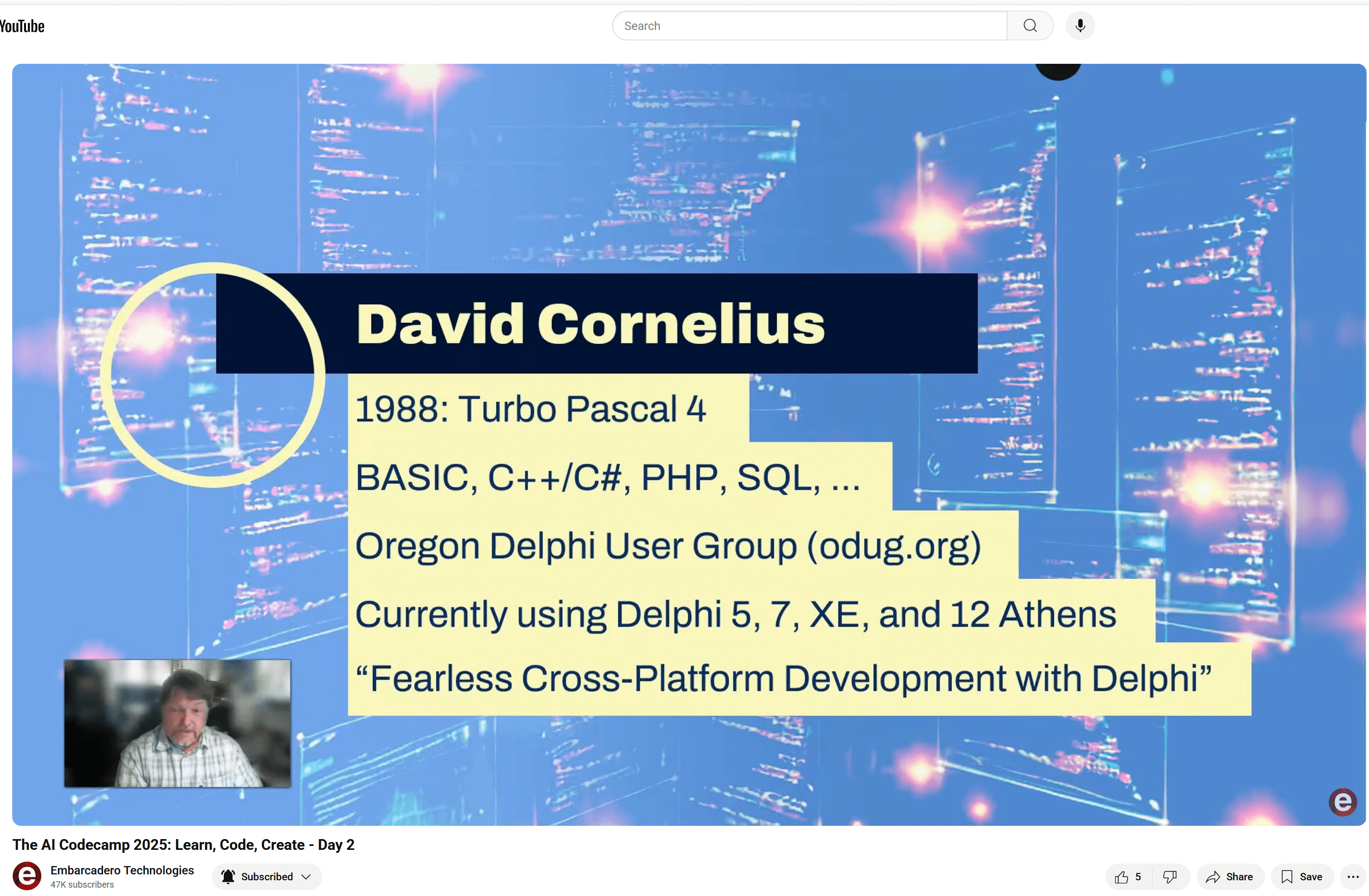
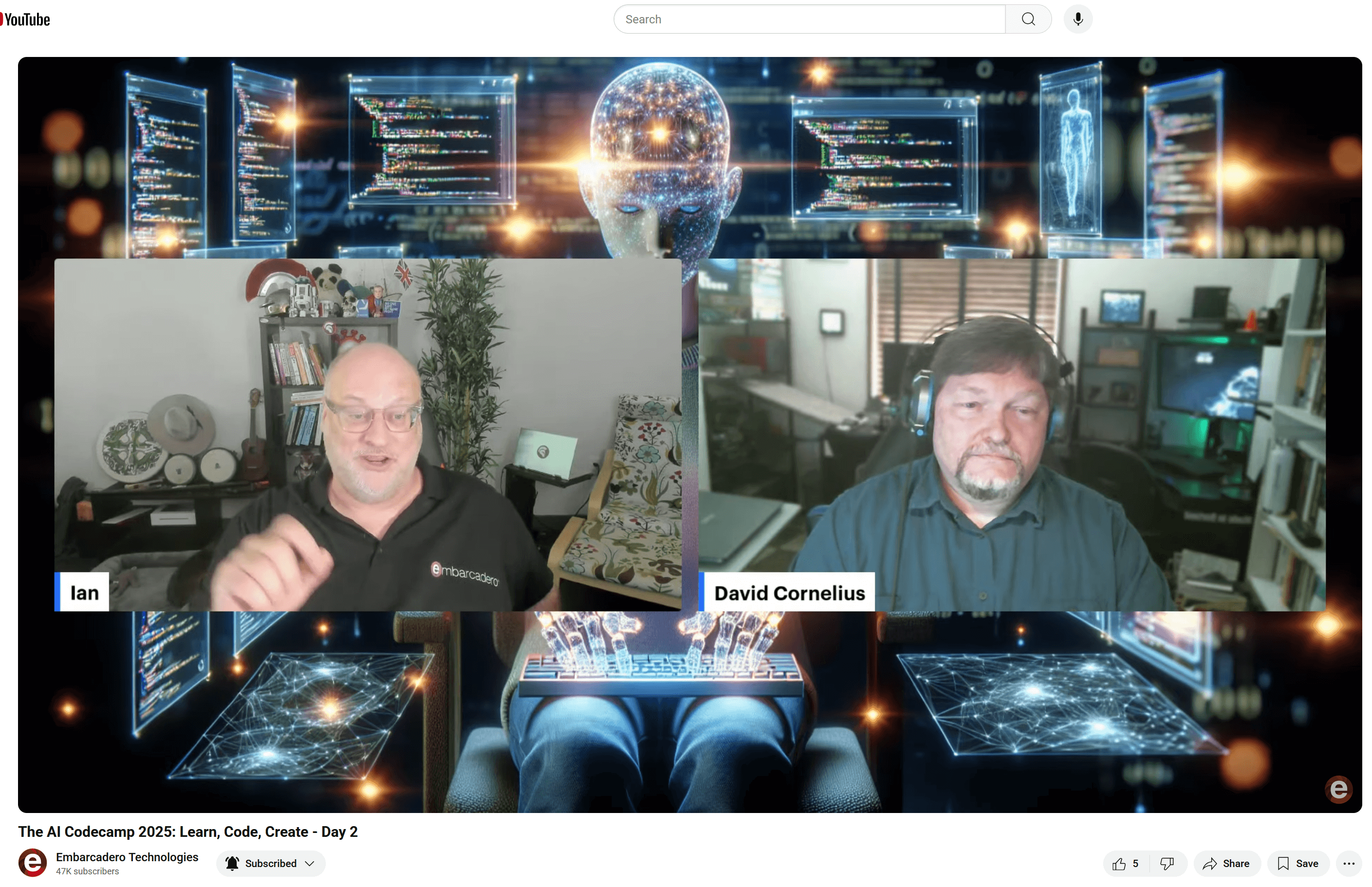
David Cornelius; The Real Truth About AI
What I Liked
- Clear agenda, well-scripted, followed through on promises
- Entry-level examples made it easy for newcomers to relate
What Could Be Improved
- AI-generated voiceover was unnecessary—we want the human!
- Lacked depth in exploring how AI impacts higher-level thinking or architecture
Overall
A good starting point for beginners. Useful for developers just beginning to consider how AI might support everyday tasks.
4. Implementing Your Own Edge AI With Delphi
Presenter: Boian Mitov
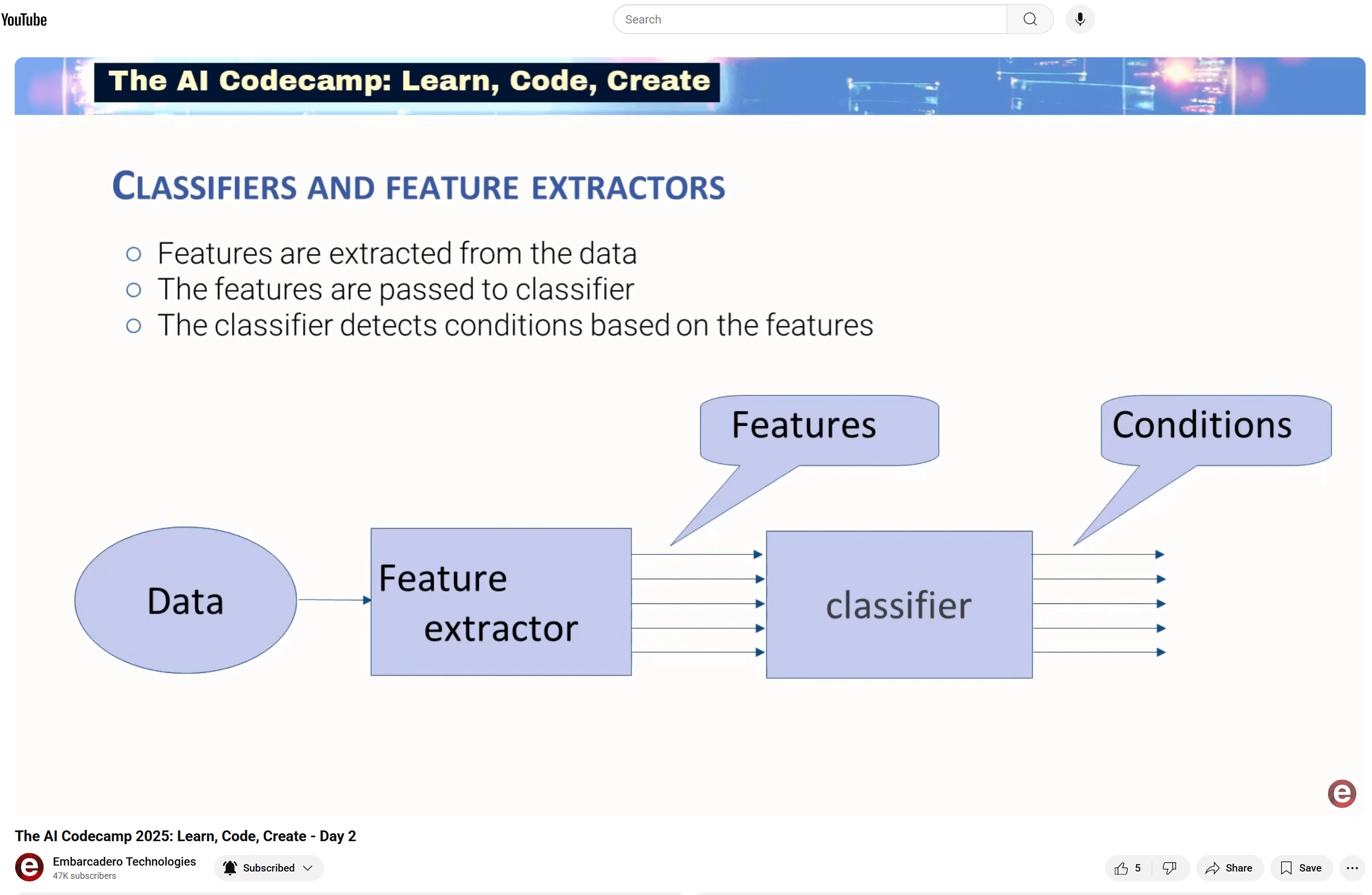
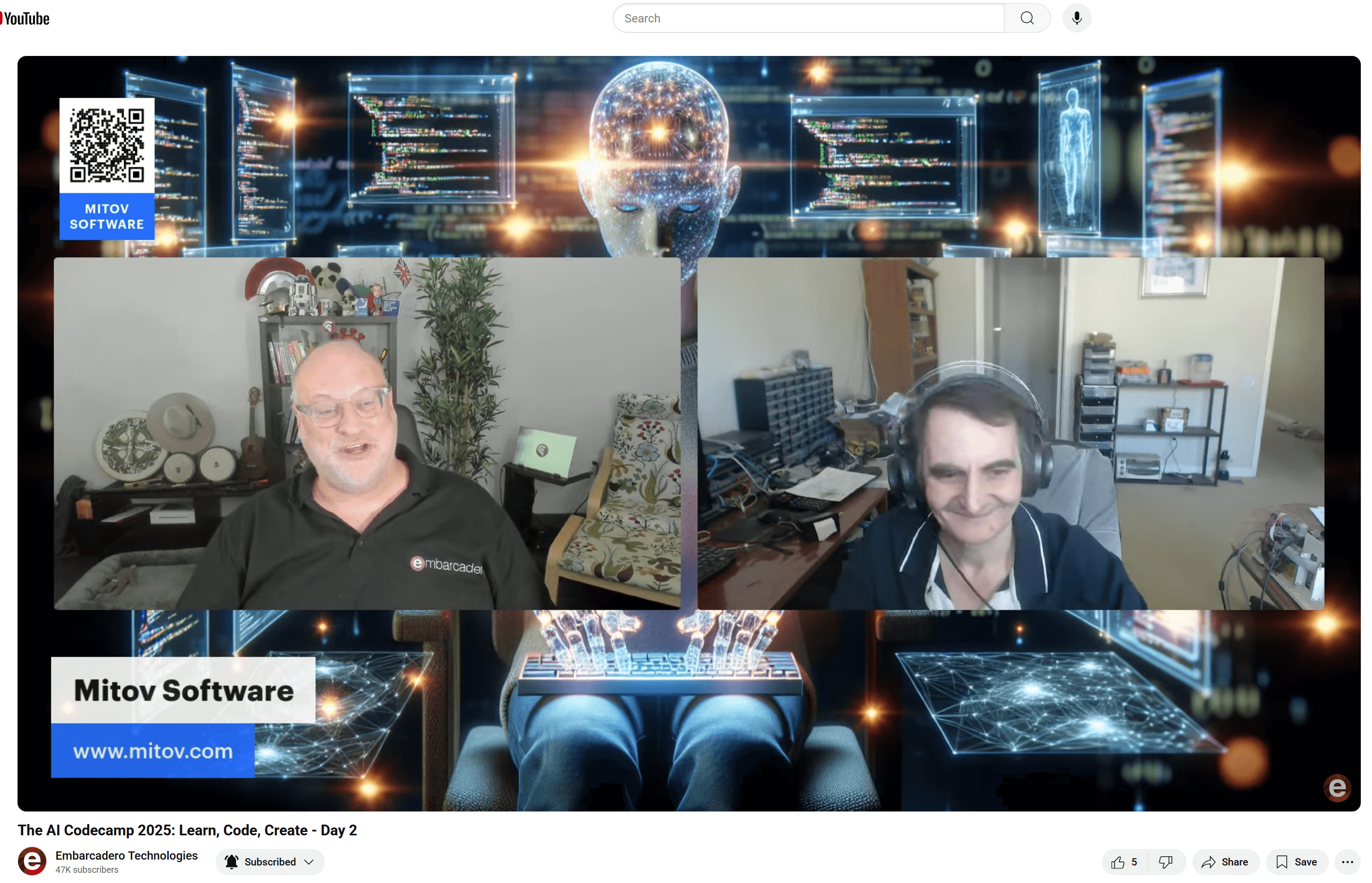
Implementing Your Own Edge AI With Delphi; Boian Mitov
What I Liked
- Thorough walkthrough of Edge AI history and applications
- Built demos progressively in complexity
- Clear definitions of classifiers and feature extractors
What Could Be Improved
- Required significant prior knowledge to follow along
- Component-heavy demo lacked conceptual grounding for learners
Overall
A deep dive into Mitov's powerful ecosystem of tools—a treasure for experienced users, but probably out of place in a general-access beginner event.
5. AI Voice Interaction With Your ERP
Presenter: Daniel Fernandes
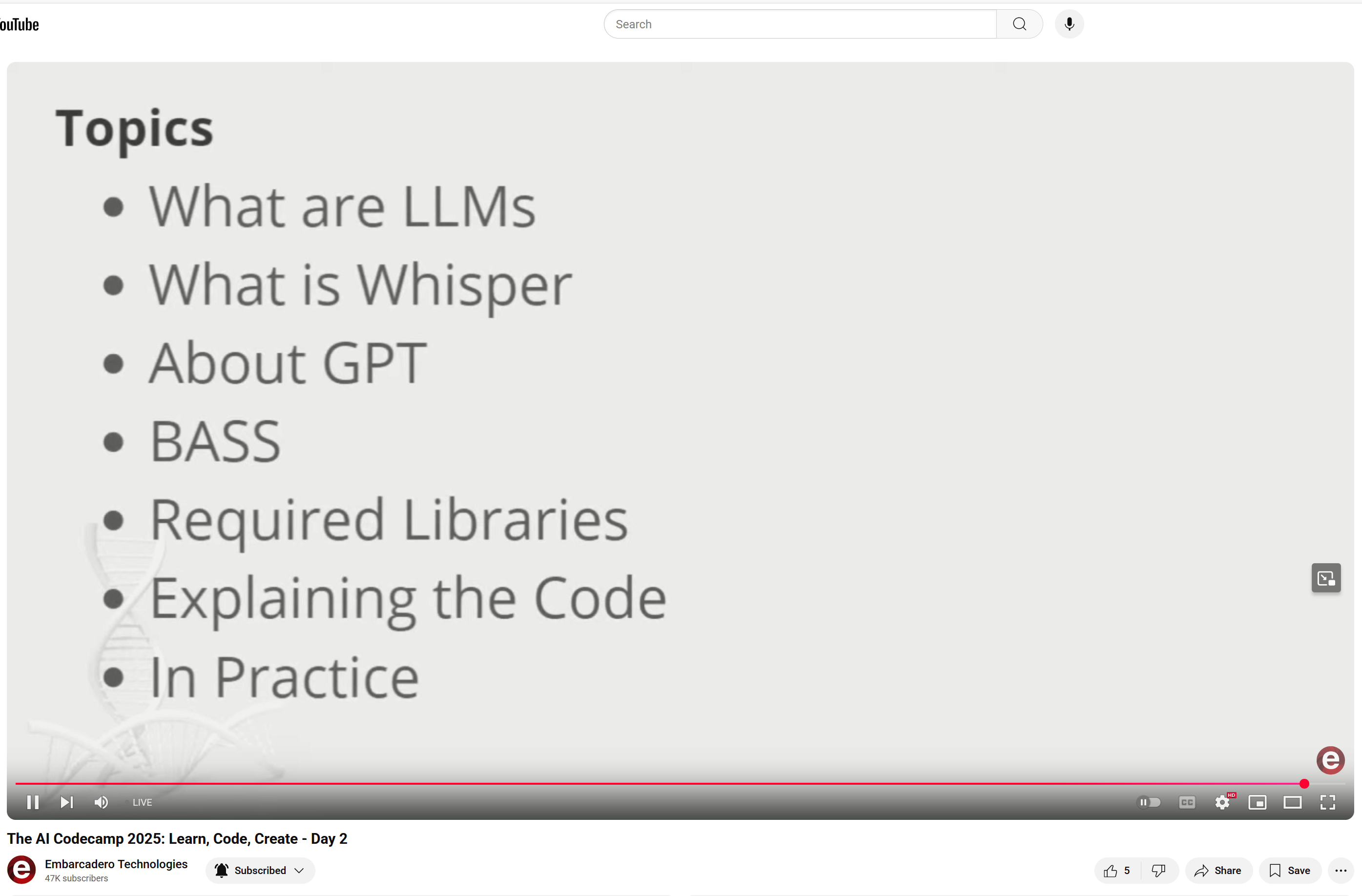
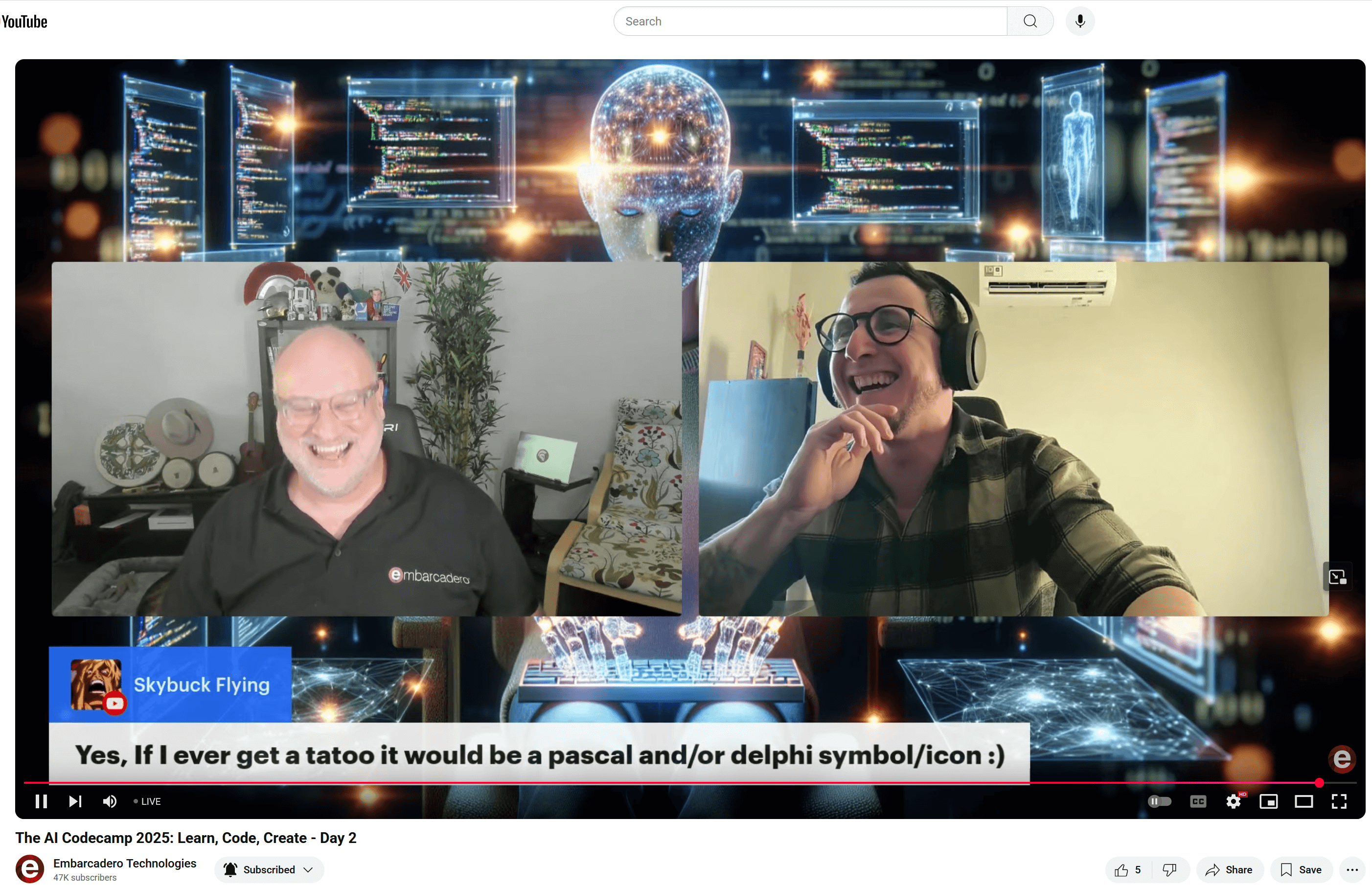
AI Voice Interaction With Your ERP; Daniel Fernandes
What I Liked
- Clear definitions (LLM, Whisper, ChatGPT, BASS)
- Live demo included audio feedback, showing voice interaction in action
- Code formatting made anonymous methods easier to follow
What Could Be Improved
- Terminal-based library installation (Chocolatey, pip, Conda) was overkill
- Too much screen time spent on scrolling command-line output
- ERP terminology was inflated—this was about transactional automation, not planning
Overall
The voice-driven invoice generation demo was impressive, but the value of the underlying architecture needed clearer articulation.
6. Making Your Apps Recognizable And Controllable
Presenter: Bruno Fierens
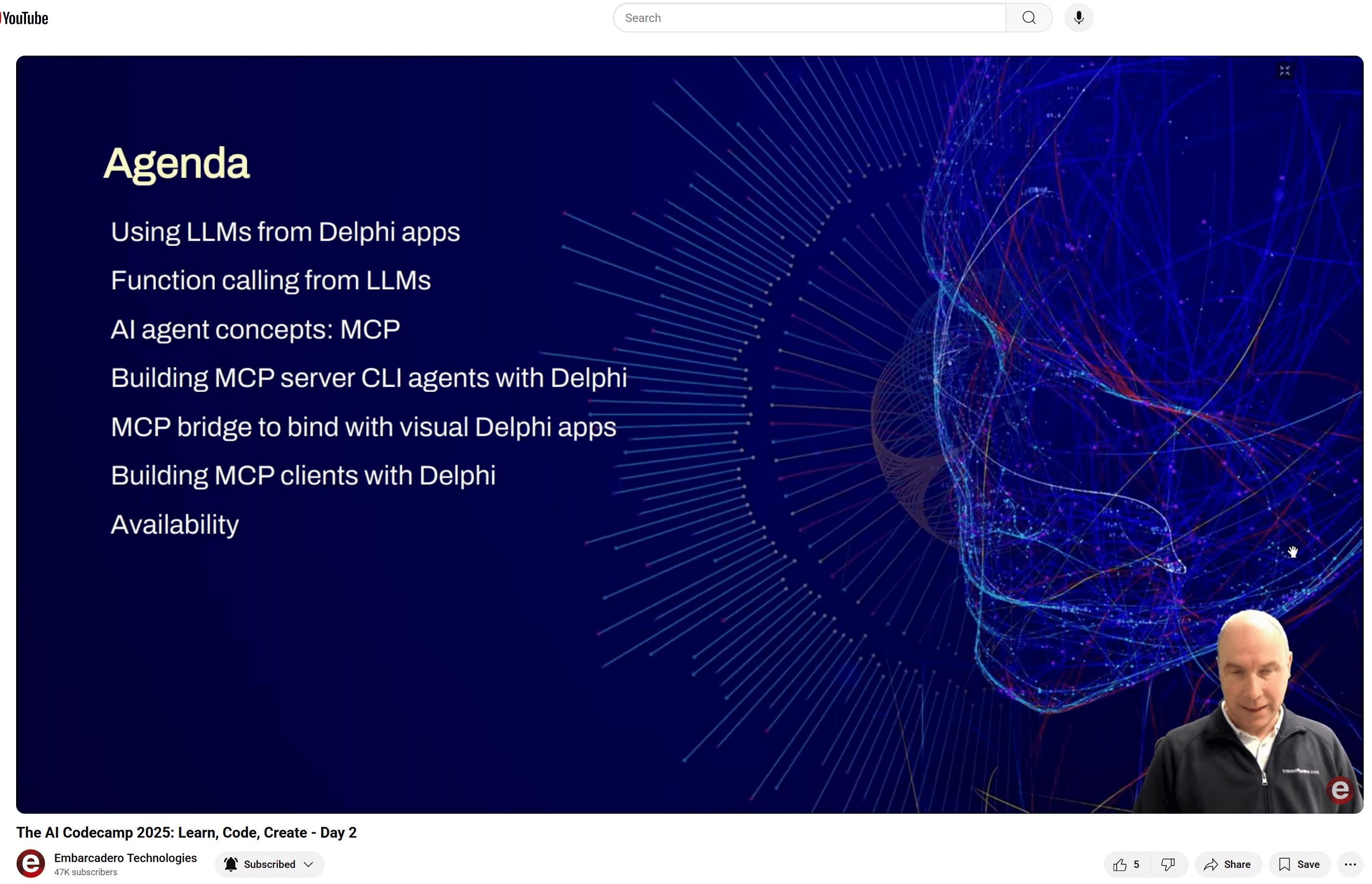
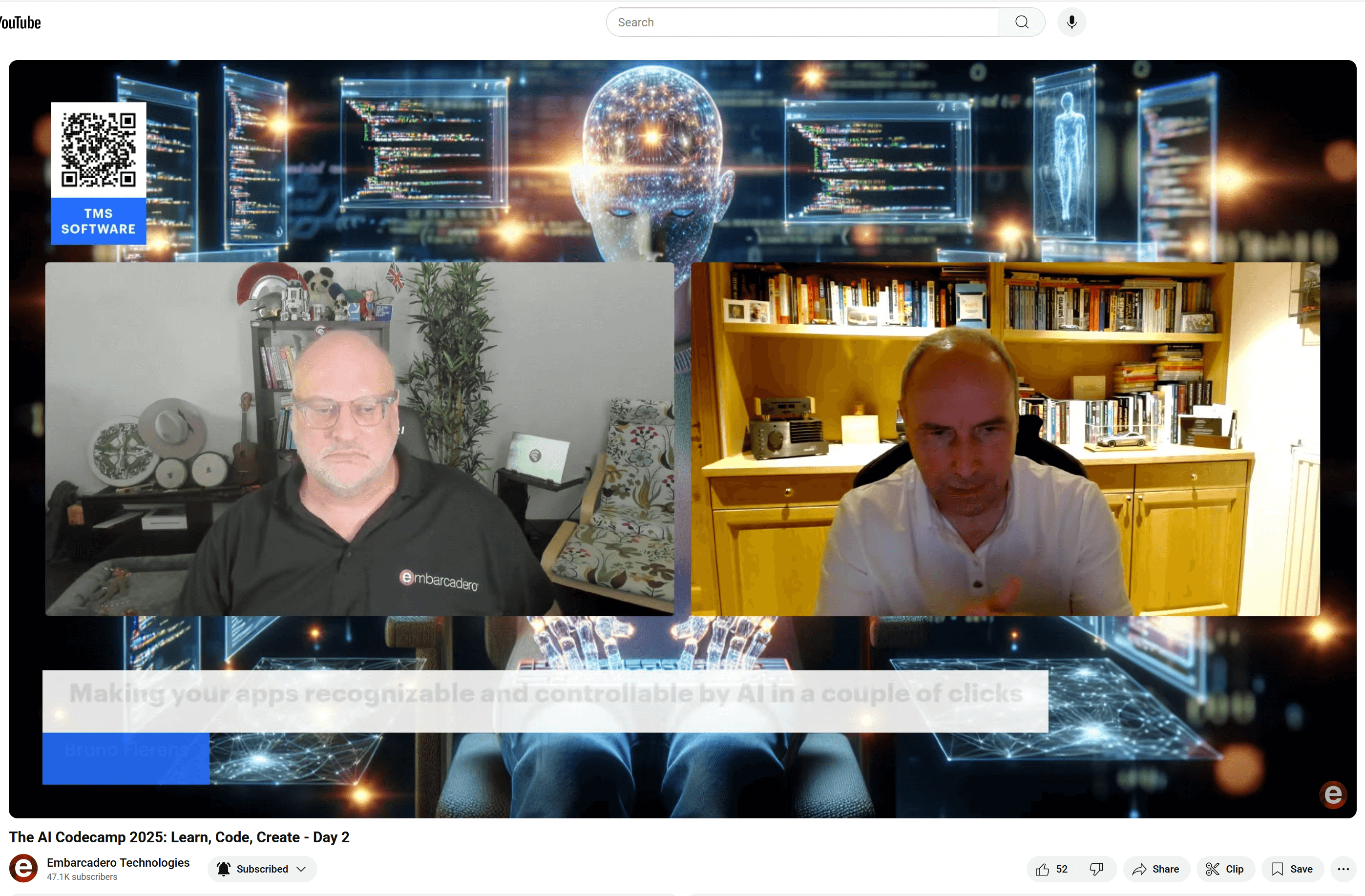
Making Your Apps Recognizable and Controllable; Bruno Fierens
What I Liked
- Demo built progressively with clear narrative and pacing
- Presentation style and video quality were professional
- Multimodal example (image + LLM) showed model flexibility
What Could Be Improved
- Unclear how the MCP Server enhances functionality—needs better explanation
- Security issues with API keys were mentioned but not resolved
Overall
A well-crafted presentation from a seasoned presenter. The Model Context Protocol (MCP) concept is intriguing and deserves deeper follow-up.
General Evaluation of Day Two
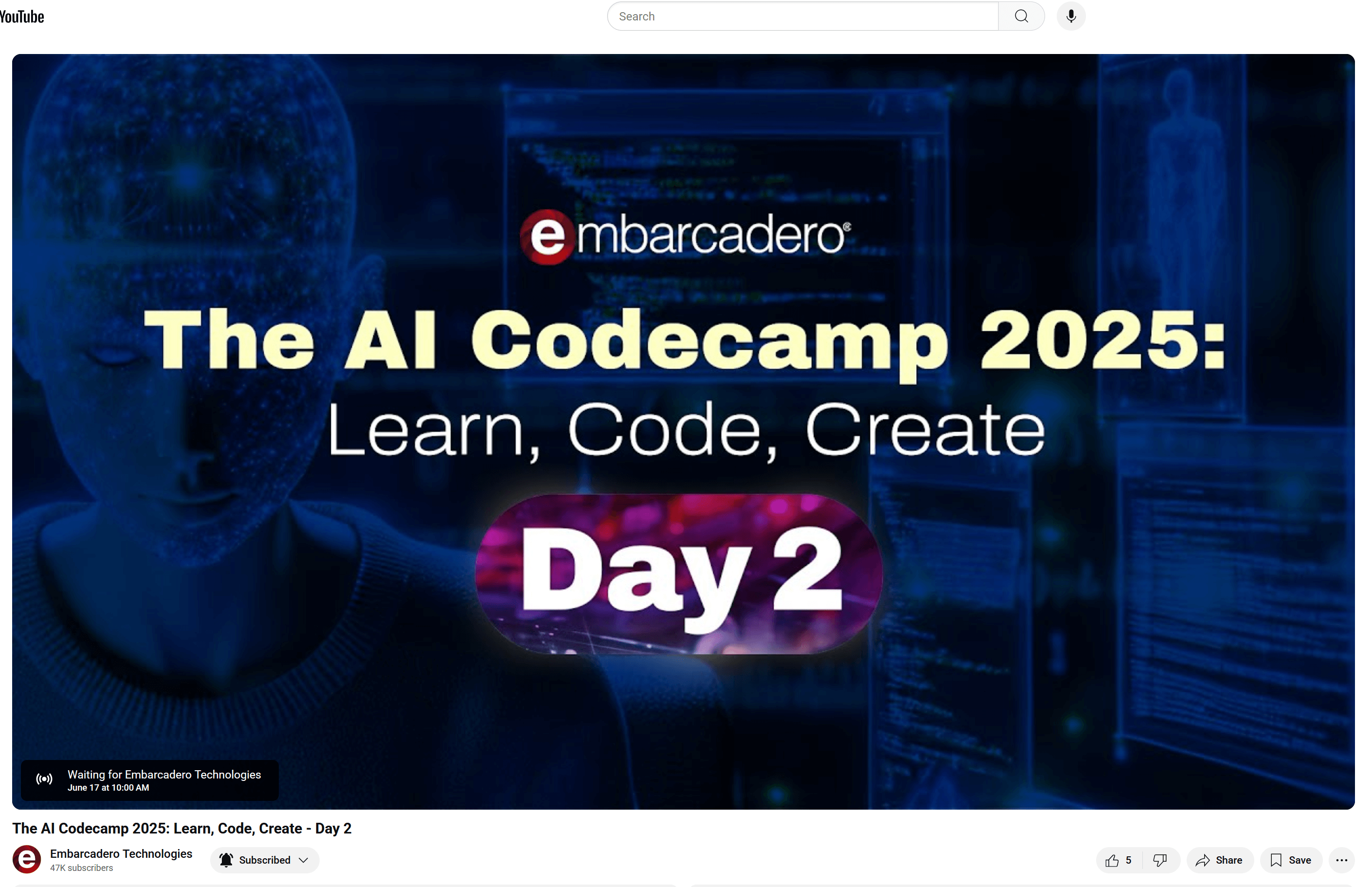
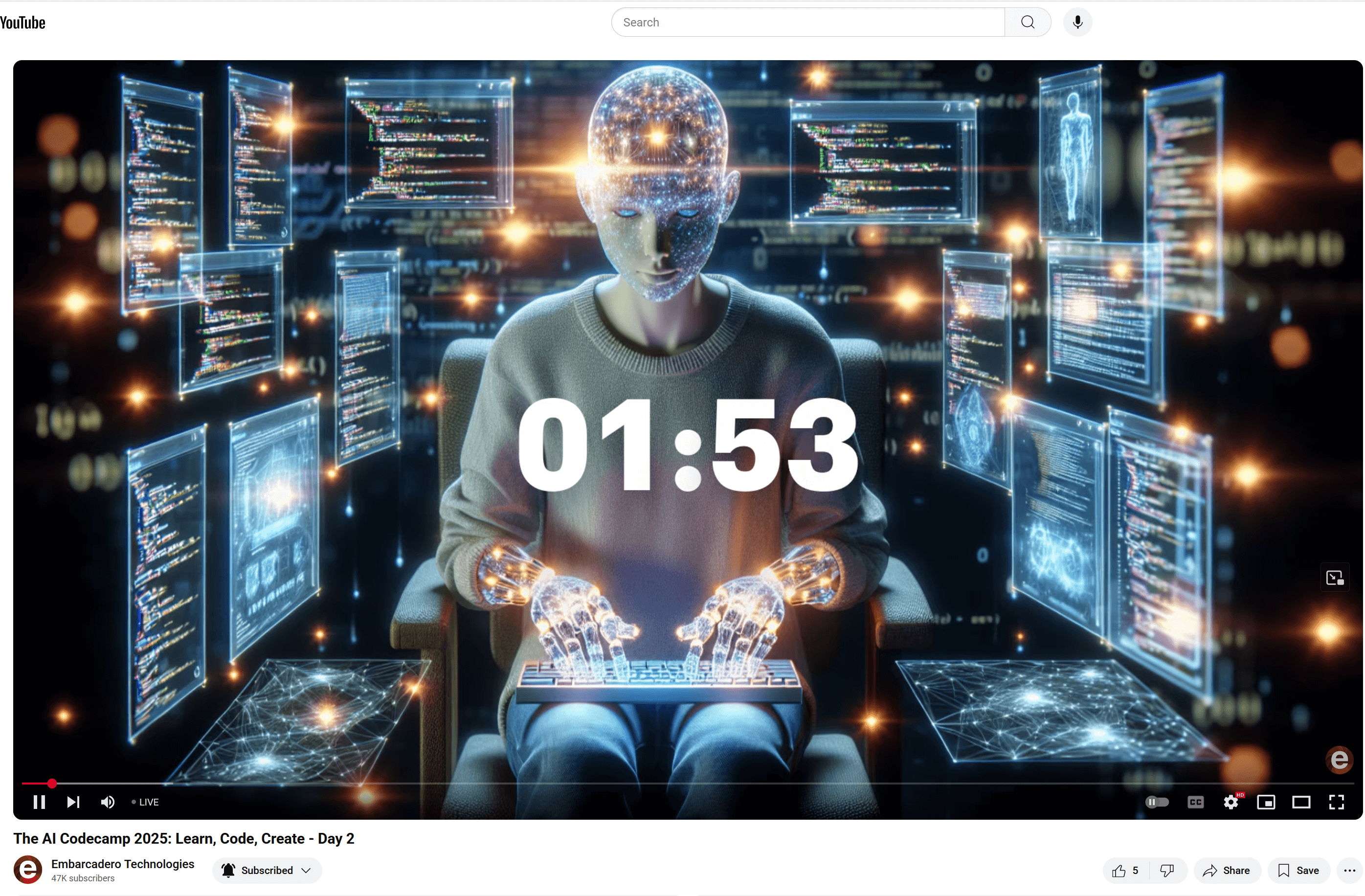
Day Two; General Evaluation
What I Liked
- Introduced new tools, techniques, and real-world use cases
- Sparked questions about AI integration, prompting further study
- Some presenters (especially live) were engaging and enthusiastic
What Could Be Improved
- The event ran over six hours without breaks.
- Sessions were not scaffolded—each assumed wildly different levels of expertise
- Many presenters prioritized demos over actual teaching
- Terminology was often used without definition, alienating newer developers
“Learn, Code, Create” implies a logical progression. What we got was more like: Code, Code, Code.
Overall
If you’re an experienced Delphi developer with a grasp of APIs and some AI familiarity, you probably got value from the day. But if you came hoping to learn—in the structured, educational sense—you were largely on your own. I had to turn to ChatGPT multiple times to make sense of concepts that should have been explained live.
Going forward, Embarcadero might consider:
- Spacing content across shorter sessions
- Including beginner-focused scaffolding
- Offering feedback surveys to understand what’s landing (and what isn’t)
- Remembering that teaching is not the same as showing
That said, there were moments of real promise. With better structure and pacing, CodeCamp could become a much more effective bridge between legacy Delphi and modern AI. For now, though, it remains what it showed best: mostly code.
